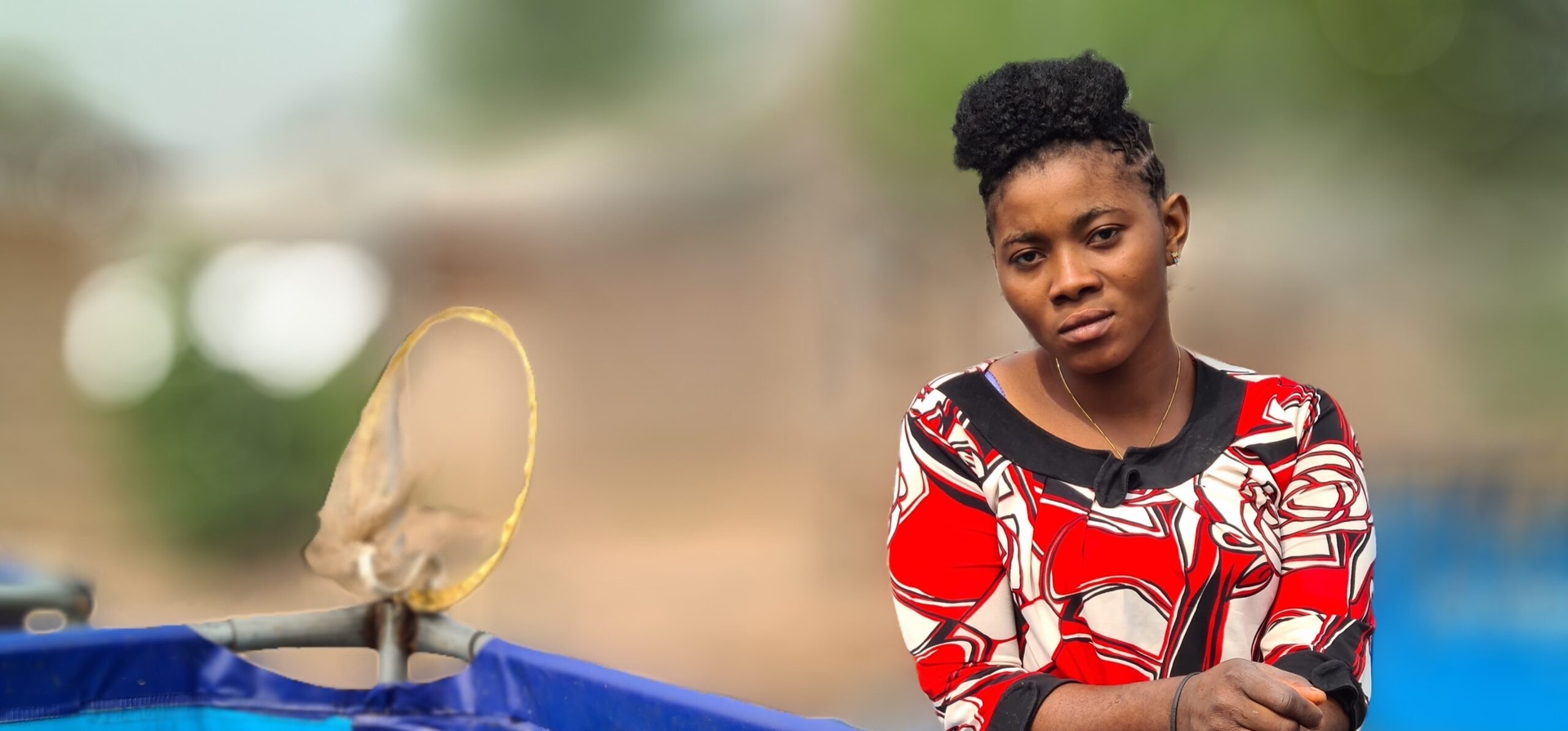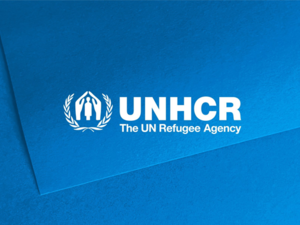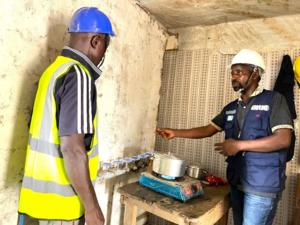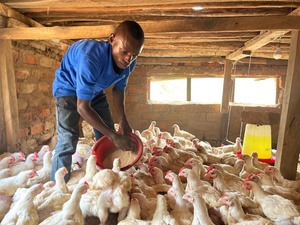Fish and chicks

Fish and chicks
Winifred had to feed the catfish for months and be patient. Finally, she can put food on the table after selling her first fish in Nigeria.
“I am so happy. This is the first time I am selling fish from the farm”, says Winifred Ayah, 26-year-old mother of two. Her clients sent her into the fish pond several times to catch the biggest catfish she could get. Winifred sold the fish at 1,200 Naira (some 3 USD) per kilo, an income she needed to make ends meet.
Winifred is one of 44 Cameroonian refugees and four Nigerian neighbours who have been working for months to see the fruits of their endeavour. Their 24 ponds are part of an integrated farm that also has poultry pens and a vegetable section for the rainy season. The farm is a UNHCR-supported livelihoods project which is implemented by the Canadian NGO CUSO International. In the spirit of the Global Compact for Refugees, the Nigerian government made the project possible by allocating land for the farm.
The project supports individuals that meet certain vulnerability criteria: widows, female-headed households, survivors of gender-based violence or large families. UNHCR aims at helping them back on their feet based on sustainable approaches and market research. Alongside cash for food in the early stages, refugees receive the trainings and tools to help themselves. For Winifred’s partner at her pond, 30-year-old Usaw Joevert, fish farming is new as he was a glasswork engineer. They make a perfect team, as Winifred used to produce and sell dry fish back in Cameroon. Winifred.
Both arrived in Nigeria’s Cross River State in 2018 at a time of “a lot of shooting and mass arrest”, as Usaw recalls. The Western parts of Cameroon are plagued by an armed conflict between secessionist forces and the army.
They live in Adagom refugee settlement which UNHCR built on land made available by the Nigerian government. The settlement hosts 27,600 Cameroonian refugees.

fish and chicks him
Sylvester Abang is one of them. He works in the poultry section of the farm, a completely new experience for him. He wanted to go to college when he was forced to flee Cameroon with his wife and four children in 2018. “We ran away to protect our families. We trekked through thick forest for five long days. We put our clothes on the ground at night to sleep on them”, he explains. “It’s only by the grace of God that we are living”.
Sylvester is grateful for the chicks he breeds and for the additional skills he acquired. "With this knowledge," he says, "I will not face difficulties in the future.”
At the farm, it’s not all rosy. Finding markets with customers that pay a good price remains a challenge for such a delicate produce like poultry and fish. A chicken was selling at 1,600 Naira (some 4 USD), very much to Sylvester’s disappointment. He had counted (and heard) that he could earn nearly 1000 Naira more with better access to market.
Zih Assumpta Sih in Ikyogen refugee settlement, Benue State, does not have this problem. She found her customers, and her business grows.
“When I arrived”, she explains, “I wanted to do what I did at home, so I asked for land, and SEMA gave me a place”. SEMA is the State Emergency Management Agency managing the settlement for the Cameroonian refugees. On the plot of land, she started cultivating watermelons, a first in the area, and cucumbers. UNHCR supported the businesswoman through its livelihoods partner CUSO.
466 watermelons and sacks of cucumbers
Her first harvest brought “466 watermelons” and many, many cucumbers. She took sacks of cucumbers to Adikpo, the nearest town, and made some contacts with potential buyers. As they offered only small amounts, she politely refused. Later, the potential customers bought at the price that Zih had requested.
She earned some 100,000 Naira (some 250 USD) with the cucumbers alone and reinvested. She bought 60 chicken to get their manure “because the soil is not good” and started leasing additional land for 17,000 Naira. “I have to feed my family”, she shrugs and does not understand that others “sit and wait for aid”, as she puts it.
"People want to work."
“People want to work” comments Yukta Kumar, UNHCR’s Livelihoods and Economic Inclusion Officer in Abuja. UNHCR wants to give them the chance with an expanded livelihoods programme. “This will only be possible with considerably more support”, says Kumar.
Livelihoods are of strategic importance in the Cameroonian refugee response in South-East Nigeria as it is confronted with limited engagement by donors and other agencies. In 2020, UNHCR had to reduce the amounts of its cash for food assistance.
UNHCR plans to provide agriculture, livestock or business starter kits, start-up grants and trainings to IDPs and refugees across Nigeria to build their capacity to meet their basic needs. The Agency plans to invest 5 million USD in these livelihood activities in 2021. “Without support for sustainable livelihoods and economic inclusion, only a few people will get back on their feet”, explains Kumar.









